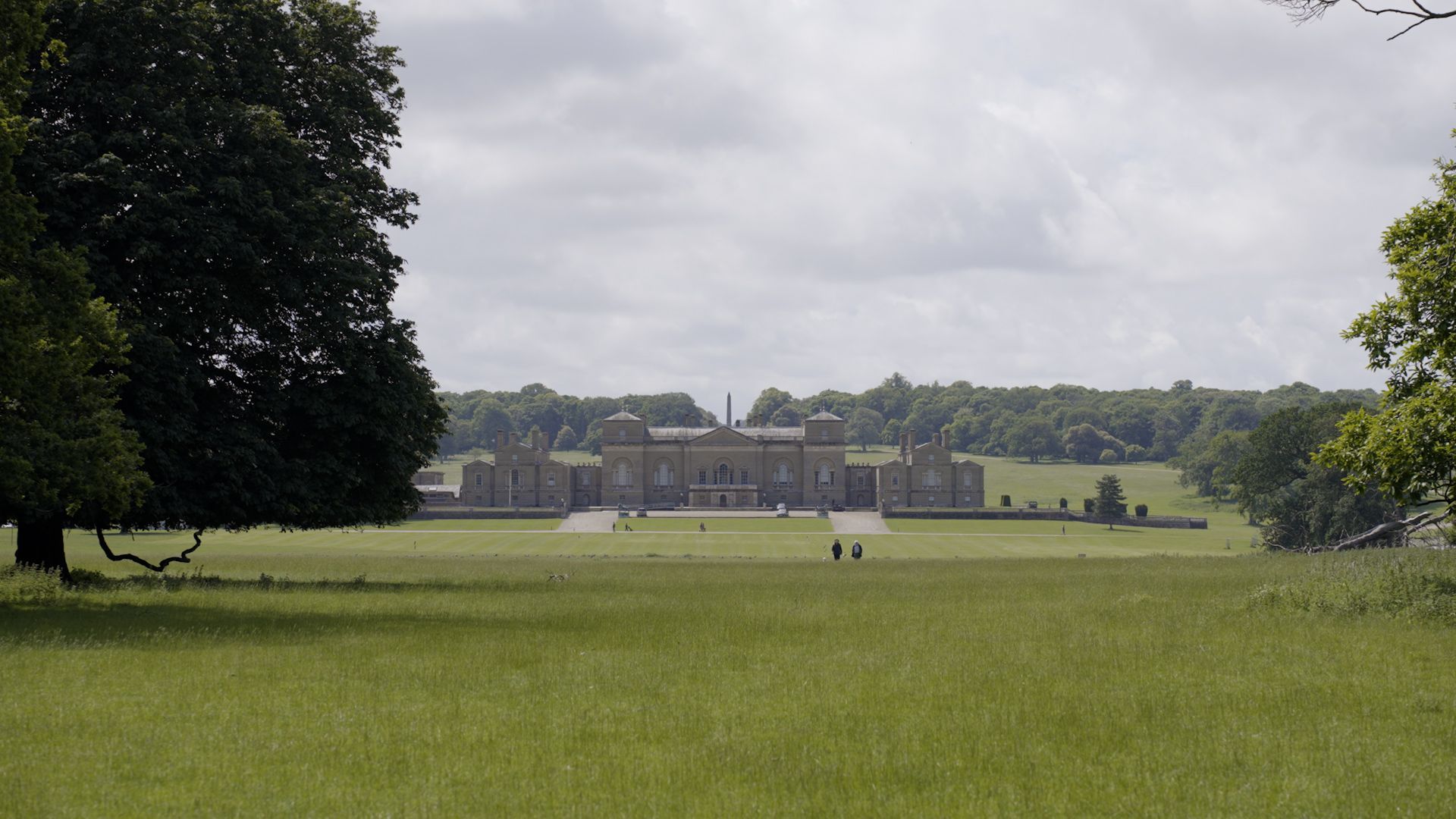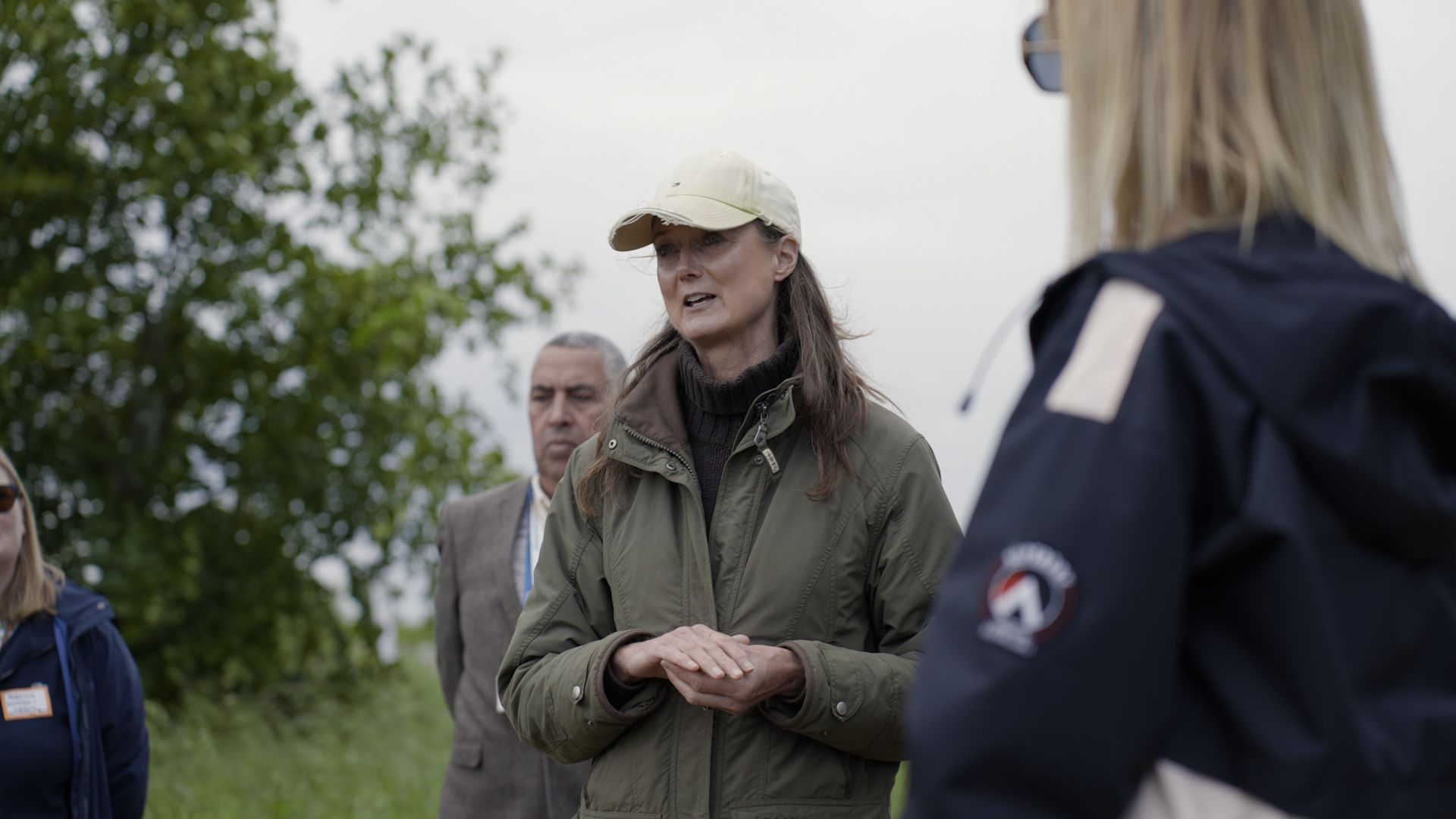Holkham Estate
Wells-next-the-Sea,
NR23 1AB
In late June 2024, Love British Food’s Founder and CEO, Alexia Robinson organised a special visit to the Holkham Estate in Norfolk by kind permission of The Earl of Leicester and hosted by Jake Fiennes, Director of Conservation. NHS and public sector leaders from Norfolk and Suffolk attended. This was the most senior gathering we have had on our farm visits and included the CEO of NHS Norfolk and Waveney ICB, the CEO of Healthwatch Norfolk, the Cabinet Member for Public Health and Wellbeing, Norfolk County Council, Catering Operations Managers from most of the Norfolk and Suffolk hospitals and health care organisations and Norse Catering one of the main food service organisations in the area.
Holkham
Holkham Estate is one of Britain’s largest historic country estates and the largest privately owned nature reserve with a million visitors a year. It leads the way in delivering exceptional food production together with pioneering conservation. Focused on soil health, connecting habitats, enhancing the environment, developing science-led innovations and making their farming operations leaner and greener, they are pushing boundaries at a pivotal time for agriculture and the environment.
Our host, Jake Fiennes
Jake Fiennes has become one of Britain’s most well-known conservationists and is renowned for his knowledge on restoring flora and fauna to the British countryside. Author of ‘Land Healer: How Farming can save Britain’s Countryside’.
Jake is on a mission to change the face of the English countryside. As Conservation Director at Holkham, his radical habitat restoration and agricultural work has nurtured its species and risen its crop yields - bringing back wetlands, hedgerows, birds and butterflies over 25,000 acres of land.
The estate grows an array of crops including malting barley, wheat, maize, oilseed rape, sugarbeet, peas, potatoes and rye. Alongside the crops, they have sheep and cattle, both introduced to graze the cover-crops and the Holkham National Nature Reserve, with the additional advantages of their excrement enriching the soils and a supply of delicious, low-mile, local beef and lamb to nearby butchers and the local hotel and restaurant.
They have been advocating crop rotation for centuries and continue to lead the way in farming practices today. Alongside reducing artificial inputs and maintaining an eight-year rotation aimed at increasing soil health, crop quality and natural capital, there is rarely any bare soil across the estate. Cover-cropping, environmental stewardship, wide hedgerows, bountiful field margins and organic manures and digestate help deliver a beneficial and sustainable farming system.
The day
Travelling around the estate on the back of a trailer, the discussion started at the base of The Coke Monument to Holkham’s achievement as one of the birthplaces of the agricultural revolution. Starting our discussion there and listening to Jake talk about farming and conservation, felt very pertinent and moving.
Our tour then moved on to the fields where Jake showed us the huge crop of potatoes that the estate grows. And then on to what Jake described as high-end conservation where we saw the beautiful richness of the flowers, grasses and butterflies that thrive as a result of the estate’s approach to farming and land management.
We gathered for a discussion over lunch in the Holkham café and visitor centre.
We discussed in particular whether healthier food could result in lower acute hospital length of stay; and the need for data to prove this so that it would be easier for budget holders to request and justify increased food spend.
There is some research in Australia, which suggests hospital length of stay could be reduced by 1.2 days:
The James Paget University Hospitals NHS Foundation Trust inspired everyone with their idea of shared catering for patients and staff to improve staff wellbeing and reduce sickness and absence.
There was also agreement that NHS trusts are anchor institutions for local producers and have a responsibility to buy local, as well as consider the environmental impact, cost of wasted food.
As a result of the day, all the caterers who attended have asked to join the Love British Food Hospital Working Group so that they can share ideas with others across the country on providing healthier food.
Since the farm visit, further discussions have taken place around the connection between good food and patient outcomes. We have been told that “the feeling is that there is a lot of association rather than causation in this. But, it is still a very good area to explore.” Hospital malnutrition is a predictor of increased length of stay, impaired wound healing, increased risk of infections and complications, and increased morbidity and mortality. Malnourished patients have more substantial care needs with a greater reliance on hospital resources resulting in higher healthcare costs.
Quality Improvement teams have therefore been asked to consider a quality improvement project across all three acute hospitals in Norfolk (as well as community trusts), which will also consider meal timings, interruption for medications, procedure related fasting, chewing difficulties and protocols for nutritional screening.
And Norfolk’s Health and Wellbeing Board is likely to consider wider opportunities as a result of the day’s discussions.
“It’s easy to enjoy a day out like this and assume nothing will actually happen in practice, but it has resulted in a ripple effect and impact.”
“Thank you for a very valuable day.”
“Thank you for having us. I think it is a very positive way to engage the NHS into looking further into their food supply chains. We are actively joining the Love British Food Hospital Working Group and any information obtained and issues highlighted through this will be highlighted and discussed for any future tender processes and food procurement activities.”
“We are actively looking at sourcing British and local products for the Queen Elizabeth Hospital; we have just recently tendered our meat contract and now use a local supplier all with British meat as part of the tender.”








